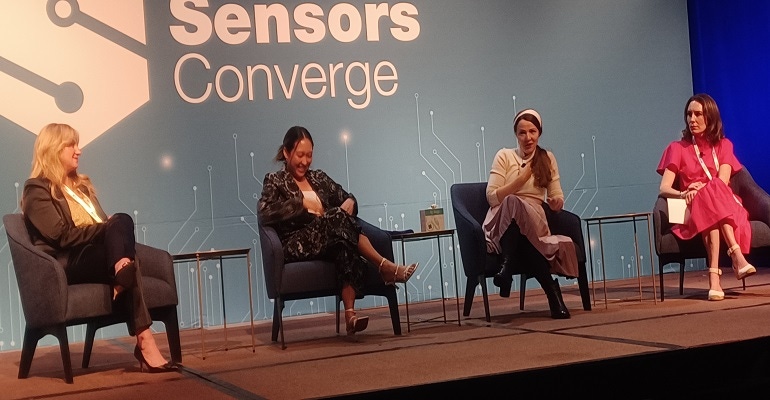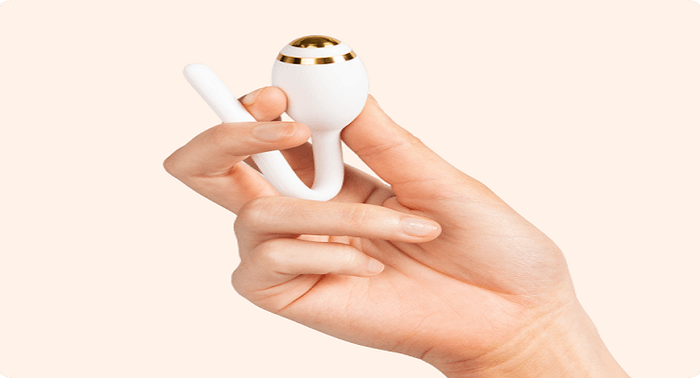Women in Femtech Confront Misconceptions, Funding Issues
At Sensors Converge, female entrepreneurs discuss challenges of funding and promoting women’s sexual health products many do not understand.

It is challenging enough to be a female entrepreneur in the sensors marketplace, where men dominate in sheer numbers and influence. Those issues are exacerbated when the products women are promoting deal with femtech, which are software, diagnostics, products, and services that cater to women’s health and are often not well understood.
At the recent Sensors Converge exhibition and conference in Santa Clara, several femtech female entrepreneurs related their experiences in a session titled “WISE Panel: Designing for Women’s Health: The Key to Femtech Success.”
The women acknowledged the numerous hurdles they face, but they were also proud of the progress they have made and remain steadfast on continuing to break down the barriers to making femtech a recognized, important part of the technology landscape.
Overcoming Misconceptions
One of those barriers has been the perception of many women’s health problems as being rooted in mental, rather than physical issues.
“When women have a sex issue, it is considered a mental and not a physical problem,” said Kristina Cahojova, founder and CEO of Kegg, a femtech company that puts women in charge of their fertility. The company has developed a fertility tracker that measures changes in electrolyte levels to help monitor fertility cycles.

Noting that many of the current fertility products on the market were developed and conceived by men, Cahojova added, “Just having women’s input on medical products is very important and impactful to how women are treated.”
Those sentiments were echoed by the other panelists. Anna Lee, co-founder and head of engineering for Lioness, another femtech firm, said, “Traditional health products are tested on men first." Lee’s firm has built a smart vibrator that improves understanding of sexual pleasure and orgasms through biofeedback data. She added, “We often talk about fertility, but also forget about sexual pleasure."
Michele Wispelwey, co-founder and COO of Femgevity, a digital telemedicine platform for women, related her experience from over decade and a half in healthcare. “Current health systems don’t allow women to be in touch with their bodies. She discussed the issue of libido loss in women. “There is a lack of knowledge and education, and most of the treatments have been designed for men.”
Funding Hurdles
The panelists pointed out that the lack of understanding of women’s health issues becomes a hurdle in getting funding for their businesses, which is exacerbated by the fact that men routinely outnumber women in organizations providing funding for startups.
Kegg’s Kristina Cahojova said, “When pitching for funding, men do not understand the depth of the problem. When we received funding from women-dominated groups, we opened eyes.” Cahojova added, people “started to understand vaginal function problems. Once people saw we got funding, they started to realize the magnitude of the issue.”
Further adding to the issues of fundraising for femtech is the negative image the technology often conjures up, which the panelists say is rooted in ignorance.
“Fundraising is extremely difficult, and people do not identify with femtech. There was initially a lot of backlash,” said Anna Lee of Lioness. “We bootstrapped our company the first few years to prove our mission.”
But Lee sees signs of progress. “I have seen the industry change in the last eight years. Women are huge buying power, and this is an industry that hasn’t been tapped yet.”
The taboo image that femtech has often mistakenly generated is something that needs to change, according to the panelists, particularly because women’s sexual health has a strong impact on their overall health and well-being.
Femgevity’s Michele Wispelwey said, “Menopause is something all women encounter." She noted that all the money spent diagnosing and treating women’s health issues adds up and foresees continuing growth in femtech. “More venture capitalists are looking at femtech as a potential growth area,” said Wispelwey. She noted that her own company is now in a seed funding round.
The panelists’ optimism appears to be supported by market projections. According to Precedence Research, the global femtech market is projected to grow at a CAGR exceeding 8% through 2030, reaching $103 billion by then.
Social Media Not Always Helpful
The misconceptions about femtech products has also been an obstacle for the panelists using social media as a marketing medium.
Kegg’s Kristina Cahojova said the company’s fertility tracker cannot be promoted on social media networks because it looks like a sex toy. She added that even on Amazon, where one can buy the product, only the product’s box showing a pregnant woman can be shown and not the actual product itself.
The same goes for Lioness’s Smart Vibrator. “We have never used social media ads because our product looks like a vibrator,” said Anna Lee.
About the Author(s)
You May Also Like





